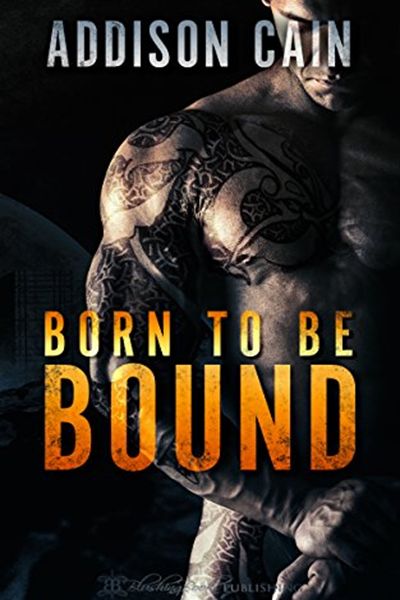Trouble in literary wolf-land
It’s not every day that an old guy like me learns something almost totally new about what’s happening in my literary backyard, but your attention tends to wander over a long lockdown, and one day my eyes latched onto a headline from The New York Times, which announced that “A Feud in Wolf-Kink Erotica Raises a Deep Legal Question.” I had to do a double-take and ask (as you probably would): “Wolf-kink what???”
I sat transfixed as I read the story, which turned out to be about a legal battle over copyright issues in what my young Creative Writing students call “fan fiction” or “fanfic,” which is a genre of literature basically devoted to, well, making new stories out of old ones. Wikipedia defines it as “a type of fictional text written by fans of any work of fiction where the author uses copyrighted characters, settings, or other intellectual properties from an original creator as a basis for their writing.”
So you could begin with, say, Shakespeare’s Hamlet, and write your own version of the play (or turn it into fiction), where Hamlet asks “To be or not to be?” because he’s a gay man dying to come out. Now, I seriously just made that up, but on a hunch, I Googled “Hamlet fanfic gay,” and guess what — there’s a story on Wattpad titled “I Gave You My Heart” where you can “follow the romance between Hamlet and his ‘friend’ Horatio.” Its portentous beginning goes thus: “Hamlet looked over at Horatio, shaking his head slightly. ‘Not here, not now,’ he thought, hoping Horatio understood. Horatio nodded slightly. He understood. They headed back to the castle. Hamlet held Horatio’s hand and led him down the hall toward his bedroom.”
Nope, certainly not Will Shakespeare speaking there (all the poor guy could say was “To thine own self be true”), but you get the idea. Fanfic is a literary free-for-all.

Or maybe not so free. The “wolf-kink” brouhaha was about two fanfic authors — Addison Cain and Zoey Ellis — who both wrote novels about wolves having sex — or, to put it more dramatically, “In both books, Alpha men are overpowered by the scent of Omega heroines and take them hostage. In both books, the women try and fail to suppress their pheromones and give in to the urge to mate.” Ellis was allegedly copying Cain, and the catfight was on, suit vs. countersuit, over pride and apparently quite a bit of money. Above the legal issues hovered the larger question of where does “originality” stop and begin? As the Times reported, “It’s hard to imagine that two writers could independently create such bizarrely specific fantasy scenarios. As it turns out, neither of them did. Both writers built their plots with common elements from a booming, fan-generated body of literature called the Omegaverse.”
The “Omegaverse”? More research for another time. But the story got me thinking about how authors have indeed taken off from other people’s work to create something newish — and the “ish” there is important, because the “new” work depends precisely on the reader’s presumed familiarity with its model to make sense. But that connection is really a bonus, because the new work also has to be able to stand on its own if it’s to be any good, and, at the highest level, to be able to present new insights and to raise new questions about the original. This way, you achieve a kind of conversation across the centuries between authors and between their readers.
One of the most popular of these “adaptations,” as some fanfic might actually be, is the Broadway musical West Side Story, which was based on Romeo and Juliet, with New York street gangs taking the place of Shakespeare’s feuding families.
I hadn’t really thought of it this way before, but looking back, I was surprised to see how much of my own work was a kind of fan fiction. Remember James Joyce’s classic story “Araby,” which lent a memorable poignancy to the word “crush”? It’s become a masterplot which others have followed, among them NVM Gonzalez in his story “Bread of Salt.” In the early 1990s, I wrote my own version titled “Ybarra,” an “Araby” in reverse where the boy is now an old man.
Three of my plays were fanfic: Mac Malicsi, TNT was about a fleet-footed Pinoy in the US, taking off from Bertolt Brecht’s Threepenny Opera, which in turn was an adaptation of John Gay’s The Beggar’s Opera; Ang Butihing Babae ng Timog, about bargirls and their patrons, was inspired by another Brecht play, The Good Woman of Setzuan; and Kalapating Dagat, in which Simoun returns to Manila on a ship from Hong Kong and meets a lady of the night named Augusta, relies heavily on the audience’s association of Simoun with Rizal’s protagonist in the Fili.
They may not be as exciting as Alpha and Omega wolves in heat coupling under a harvest moon, but at least no one’s sued me yet. I doubt that Brecht and Rizal or their estates would have bothered —at least until I make my first millions, which I’m still waiting for.
(Email me at jose@dalisay.ph and visit my blog at www.penmanila.ph.)


